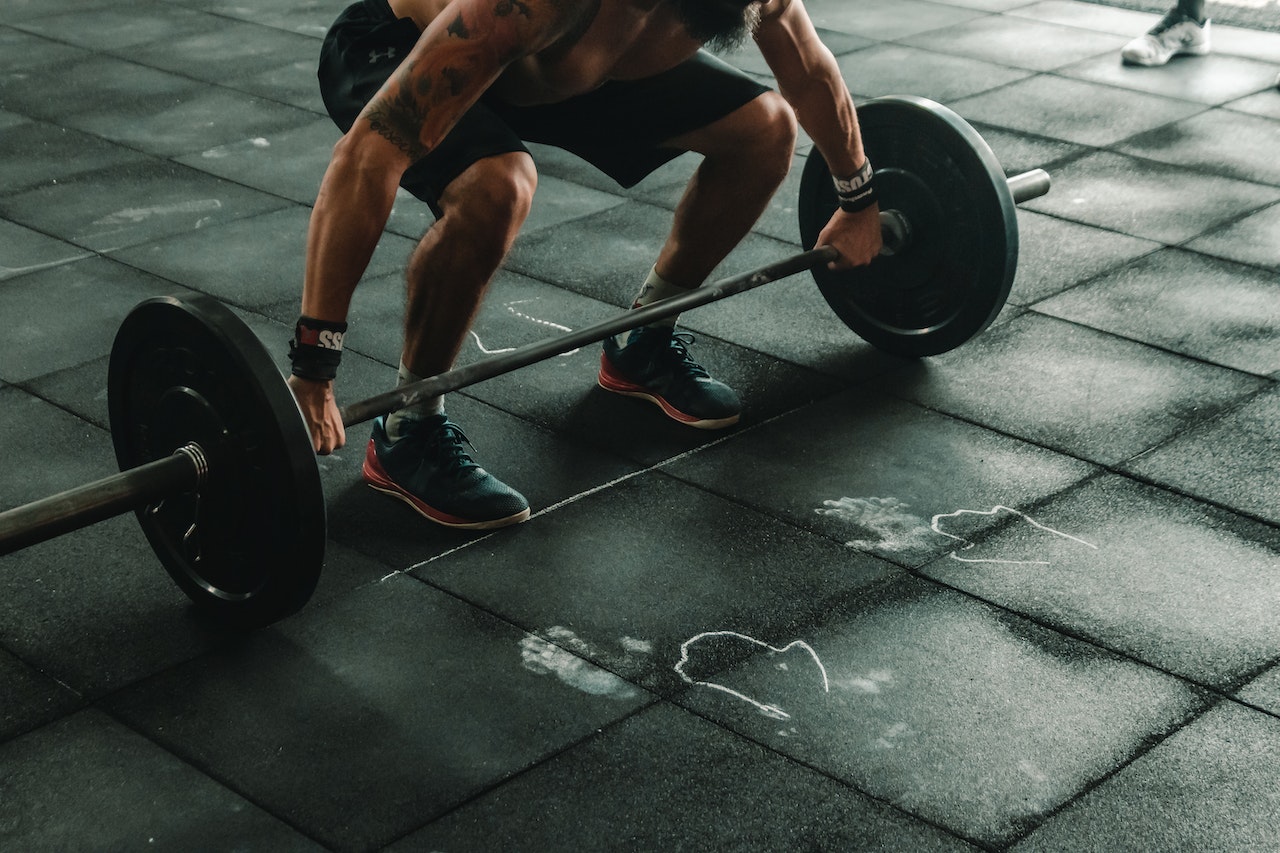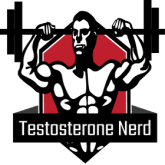Testosterone is a hormone that’s mainly produced mainly in the testes but also in the adrenal glands, has been linked to everything from sexual function to aggression, and many believe it plays a key role in building and maintaining muscle mass.
But is this really the case, or just another myth perpetuated by the fitness industry?
In this article, we’ll delve into the science of testosterone and muscle growth, exploring what we know, what we don’t know, and what the latest research is telling us about this fascinating topic.
So if you’ve ever wondered why some people seem to build muscle more easily than others, or how to optimize your own strength training regimen, read on and discover the truth about testosterone and muscle mass.
What is Testosterone?
Testosterone is a hormone associated with masculinity and male sex characteristics, but it plays a crucial role in regulating muscle mass as well.
In recent years, scientists have been exploring the connection between testosterone and muscle growth studies, delving deeper into the mechanisms behind how the hormone impacts the body.
Testosterone is produced in the testes for men, and in smaller amounts in the adrenal glands for both men and women. It is responsible for initiating the development of male characteristics during puberty, such as body hair growth, deepening of the voice, and muscle tissue enlargement.
Beyond puberty, testosterone continues to play an essential role in maintaining muscle mass and strength. Several studies have shown that testosterone levels directly impact muscle size and mass, as well as overall physical performance.
Some of the ways in which testosterone influences muscle growth include increasing protein synthesis, enhancing muscle fiber recruitment during exercise, and reducing muscle breakdown. While testosterone is undoubtedly beneficial in building muscle mass, it’s essential to note that too much of the hormone can have adverse effects on the body.
For instance, high levels of testosterone may result in the overgrowth of muscle tissue, which can lead to hormone imbalances and other complications. Moreover, prolonged use of testosterone supplements and steroids can increase the risks of cardiovascular diseases, liver damage, and prostate cancer.
Despite these potential risks, many individuals seeking to enhance muscle mass and performance continue to turn to testosterone supplements and other performance-enhancing drugs.
As such, it’s crucial for researchers to continue exploring the science behind testosterone and muscle growth, as well as the potential risks associated with excessive hormone use.
In doing so, scientists can help individuals make more informed decisions regarding their fitness and performance goals, while minimizing the risk of hormone-related health complications.
Understanding Muscle Growth
When it comes to building muscle mass, there are a multitude of factors that can influence the process. From diet and exercise to genetics and hormones, the science behind muscle growth can be complex and fascinating.
One hormone that has long been associated with muscle development is testosterone, a sex hormone present in both men and women. Testosterone plays a crucial role in protein synthesis, which is the process by which the body builds new muscle tissue.
At a basic level, the more testosterone a person has, the more muscle mass they are likely to build. This is why men, who naturally produce more testosterone than women, tend to have greater muscle mass and strength.
However, the relationship between testosterone and muscle growth is not quite as simple as it may seem. For one thing, testosterone does not work in isolation.
Other hormones, such as growth hormone and insulin-like growth factor (IGF-1), also play a role in protein synthesis and muscle building. Additionally, certain types of exercise, such as resistance training, can also increase testosterone levels in the body.
Another factor to consider is the concept of ‘androgen receptor sensitivity.’ Essentially, this refers to the degree to which a person’s muscle cells are able to respond to testosterone.
Some individuals may have greater androgen receptor sensitivity than others, meaning that their muscles are better able to utilize testosterone for growth and development. Despite these complexities, there is little doubt that testosterone plays an important role in muscle growth.
This has led to the widespread use of testosterone supplements and other performance-enhancing drugs among athletes and bodybuilders. While these substances can indeed increase muscle mass and strength, they can also have serious health consequences and are generally considered unethical in competitive sports.
In the end, the relationship between testosterone and protein synthesis is just one small piece of the puzzle when it comes to understanding muscle growth. There are countless other factors at play, including nutrition, exercise, genetics, and overall health.
Nevertheless, the science behind testosterone and muscle building is a fascinating area of study that continues to capture the interest of researchers and fitness enthusiasts alike.

The Link Between Testosterone and Muscle Growth
When we think of testosterone, the first thing that comes to mind is its association with masculinity.
But did you know that testosterone plays a key role in building muscle mass?
Indeed, the benefits of testosterone for muscle building are well-documented, as it can aid in the synthesis of proteins that help build and repair muscle tissue.
However, it’s important to note that while testosterone can contribute to muscle growth, it’s not the only factor at play. Other factors, such as nutrition, exercise, and genetics, also play crucial roles in determining muscle mass.
In fact, studies have shown that older men with higher testosterone levels experience less loss of muscles mass.
That being said, testosterone levels do decline as we age, which can contribute to a loss of muscle mass and strength.
Maintaining a healthy level of testosterone through lifestyle factors such as exercise, adequate sleep, and stress management can therefore be beneficial for maintaining muscle mass and overall health.
Ultimately, while testosterone is just one piece of the puzzle when it comes to building muscle, it’s an important one to consider for those looking to maximize their muscle-building potential.
How Testosterone Affects Protein Synthesis
It’s no secret that testosterone plays a significant role in building muscle mass, but what exactly is the science behind the connection between the two?
Research suggests that testosterone influences protein synthesis, the process by which the body builds and repairs muscle tissue. Testosterone helps to increase muscle protein synthesis by stimulating the production of key muscle-building hormones and enzymes.
In essence, it acts as a catalyst for muscle growth by promoting the uptake of amino acids into the muscles, which are then used to build new protein strands. However, it should be noted that testosterone alone is not enough to build muscle.
Exercise and proper nutrition are also crucial components in the muscle-building equation. But what about the use of testosterone supplements for muscle building?
While these supplements can potentially boost muscle growth, they come with a laundry list of potential side effects, including acne, hair loss, and even infertility.
Additionally, the long-term effects of testosterone supplementation are still largely unknown.
Studies have found that testosterone levels can revert back to baseline once supplementation is discontinued, and that excessive use of these supplements can actually decrease the body’s natural production of testosterone.
In short, testosterone undoubtedly plays a role in building muscle mass, but it is just one piece of the puzzle.
In order to truly reap the benefits of increased muscle growth, a holistic approach incorporating exercise, nutrition, and potentially testosterone supplementation (under the guidance of a healthcare professional) should be taken.
However, those considering the use of testosterone supplements for muscle building should weigh the potential risks and benefits carefully before making a decision.
Testosterone’s Impact on Recovery
Building muscle with testosterone is a powerful idea that is not without controversy.
There are those who champion the hormone as a key factor in a muscle-building program, while others dispute the claim, pointing to potential side effects and the need for careful monitoring.
However, what is clear is that testosterone plays a critical role in recovery after exercise.
It is responsible for repairing damaged muscle fibers and supporting the growth of new ones.
When testosterone levels are low, recovery time is longer, and progress in building muscle may stall.
On the other hand, high levels of testosterone can accelerate recovery and support muscle growth, making it an important factor to consider for anyone seeking to maximize their progress in the gym.
While some may choose to rely on supplements to boost their testosterone levels, there are natural ways to optimize levels as well, including getting enough sleep, engaging in regular exercise, and maintaining a healthy lifestyle.
Ultimately, building muscle with testosterone is a complex topic that requires careful consideration and planning, but for those who succeed in harnessing its power, the rewards can be significant.
High vs Low Testosterone Levels in Muscle Building
How does testosterone build muscle mass?
That’s the question on everyone’s mind when it comes to building a muscular physique. Testosterone is often considered synonymous with muscle growth and strength, but what exactly is the science behind this connection?
It turns out that testosterone is critical for building and maintaining muscle mass, as it plays a key role in protein synthesis and muscle fiber hypertrophy.
High vs. low testosterone levels can have a significant impact on muscle building.
Men with naturally higher testosterone levels tend to gain muscle more easily and quickly than those with lower levels.
However, it’s important to note that muscle growth is not solely dependent on testosterone.
Proper nutrition, exercise, and rest are also critical factors in building muscle mass. Testosterone works by binding to androgen receptors in muscle cells, stimulating protein synthesis and increasing the number and size of muscle fibers.
This results in greater muscle mass, strength, and endurance. On the other hand, low testosterone levels can lead to muscle loss, reduced strength, and increased fat mass.
While many people may turn to testosterone supplements or steroids to boost their muscle-building potential, these options come with significant health risks and should only be used under the guidance of a medical professional.
Natural testosterone boosting options such as exercise, diet, and lifestyle changes may also be effective for some individuals.
In conclusion, testosterone is a vital hormone for building and maintaining muscle mass.
However, it’s important to approach muscle building holistically and consider all factors that may impact muscle growth.
Understanding the science behind the connection between testosterone and muscle mass can help individuals make educated decisions about their fitness journey.
Natural Ways to Boost Testosterone
Testosterone and muscle recovery have been the subject of much interest lately.
As athletes and fitness enthusiasts continue to seek out natural ways to boost their testosterone levels, the science behind the connection between testosterone and muscle mass is becoming clearer.
It turns out that testosterone plays a crucial role in building muscle mass, and there are a number of natural ways to boost testosterone levels to aid muscle recovery.
One of the most effective ways to boost testosterone levels is through diet.
Foods such as eggs, avocados, and nuts are rich in nutrients that support healthy testosterone levels. Additionally, exercise is another natural way to boost testosterone levels.
Resistance training, in particular, has been shown to be an effective method for increasing testosterone levels and improving muscle recovery.
However, it’s important to note that the connection between testosterone and muscle mass is complex, and there are a number of other factors that can affect muscle recovery.
For example, stress, lack of sleep, and certain medications can all have an impact on testosterone levels and muscle recovery. Ultimately, it’s important to take a holistic approach to boosting testosterone levels and supporting muscle recovery.
This includes focusing on nutrition, exercise, stress management, and overall lifestyle. By taking a comprehensive approach, individuals can optimize their testosterone levels and achieve optimal muscle recovery.
Conclusion
Testosterone and muscle hypertrophy, a mind-boggling relationship that has intrigued scientists for decades.
As we reach the conclusion of our exploration into the science behind this connection, one thing is clear: when it comes to building muscle mass, testosterone is a key factor.
To understand why, we must delve into the intricacies of the human body. Testosterone, a hormone produced predominantly in the testes but also in the ovaries and adrenal glands, is responsible for a range of male characteristics, including muscle mass.
It binds to androgen receptors in skeletal muscle tissue, promoting muscle protein synthesis and secretion of insulin-like growth factor 1, which stimulates muscle growth. But that’s not all.
Testosterone has also been shown to reduce muscle protein breakdown, further contributing to gains in muscle mass. However, testosterone’s role in muscle growth isn’t limited to just protein synthesis and breakdown.
It also plays a crucial role in muscle fiber hypertrophy. Muscle fibers are the individual muscle cells that make up a muscle.
Testosterone has been shown to increase the size of these fibers, leading to an overall increase in muscle size. But hold on, it’s not just men who benefit from testosterone’s muscle-building capabilities.
Women also produce small amounts of testosterone in their ovaries and adrenal glands, and even this small amount can contribute to muscle growth. However, it’s important to note that testosterone supplementation for women can have negative side effects, such as facial hair growth and a deepening voice.
In conclusion, the link between testosterone and muscle hypertrophy is undeniable. While diet and exercise are key components to building muscle, it is clear that testosterone plays a key role in the process.
FAQs
Does having higher levels of testosterone automatically result in more muscle growth?
While testosterone is an essential hormone for muscle growth, having high levels of testosterone alone will not necessarily lead to significant muscle gains.
Other factors such as nutrition, training, and recovery play an important role in muscle building.
Moreover, the ability of testosterone to promote muscle growth may vary between individuals, depending on factors such as age, genetics, and lifestyle.
Can testosterone supplements help with muscle building?
Testosterone supplements, such as testosterone boosters and testosterone replacement therapy, are often marketed as a way to increase muscle mass and strength.
While some studies suggest that testosterone supplements may increase muscle mass and strength in certain populations, such as older men with low testosterone levels, the evidence is not conclusive.
Moreover, testosterone supplements may have side effects such as acne, mood swings, and an increased risk of heart disease.
How can I naturally boost my testosterone levels to build more muscle?
There are several natural ways to boost testosterone levels and promote muscle growth.
These include getting enough sleep, maintaining a healthy diet that includes protein and healthy fats, engaging in strength training exercises, reducing stress levels, and avoiding smoking and excessive alcohol consumption.
However, it is important to note that the effects of natural testosterone boosters may be limited, and it is best to consult a healthcare professional before trying any supplements or lifestyle changes.
Is it possible to build muscle without testosterone?
While testosterone is an essential hormone for muscle building, it is not the only factor involved.
Individuals with low testosterone levels can still build muscle through proper nutrition, exercise, and rest.
In fact, muscle building can help increase testosterone levels naturally. However, if you suspect that you have low testosterone levels, it is best to consult a healthcare professional to discuss treatment options.
I've been fascinated by natural male hormone optimization since 2016. And ever since I've been going through boatloads of different meta-analyses and scientific data associated with increasing testosterone levels naturally. I hold a PhD degree in public health and have 10+ scientific publications on Google Scholar. Thus, in my collective work here you'll find helpful tricks, natural remedies, detailed product reviews (including stuff I've personally tried)... and more!





